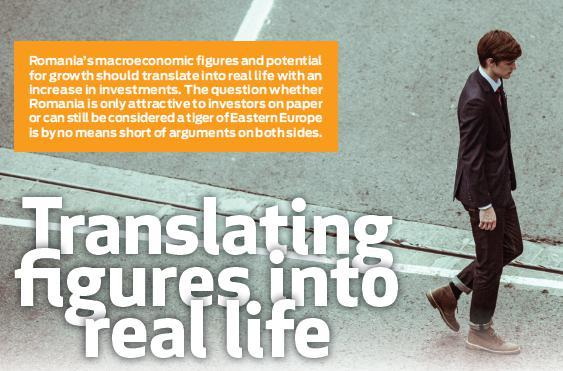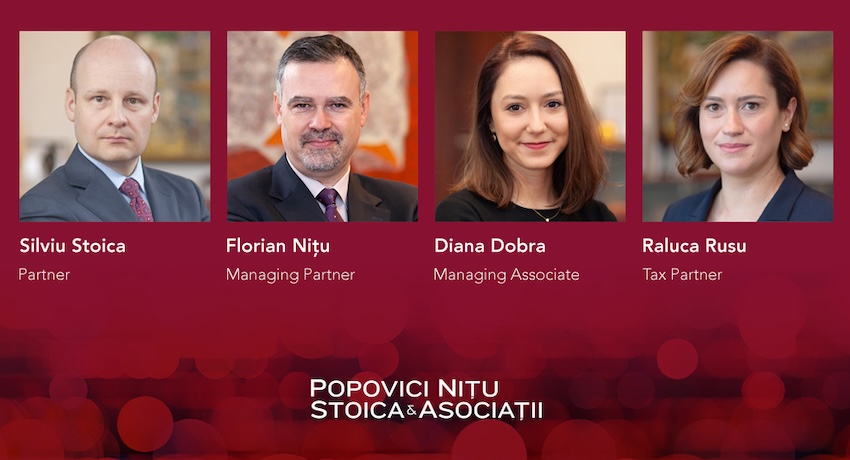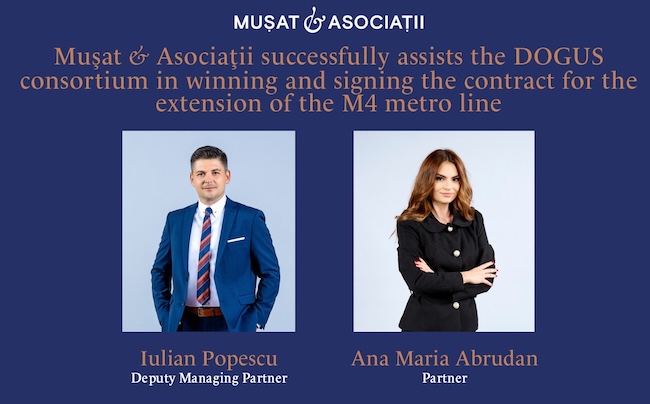Translating figures into real life

text from the 2015 edition of Which Lawyer in Romania
Romania’s macroeconomic figures and potential for growth should translate into real life with an increase in investments. The question whether Romania is only attractive to investors on paper or can still be considered a tiger of Eastern Europe is by no means short of arguments on both sides.
„Romania still has a competitive advantage over other CEE countries” - is often said in conferences and interviews and for this edition of Which Lawyer in Romania we got the same quotes. Arguments of Romania’s strong points lie on the human skills, geographical position and stability or economic growth potential. However, getting out of the realm of possibility and into actuality is still the main challenge.
Lawyers we interviewed share the common belief that the country is still a market that offers potential for a number of sectors. Does Romania offer enough convincing arguments in the battle with other markets?
“In Romania there are still opportunities for double digit investment returns. But investors need to be made aware about the opportunities in Romania,” says Bryan Jardine, Managing Partner of Wolf Theiss. “Romania does a poor job in promoting itself. We need to promote Romania not only as a tourist destination but as a tiger of the East, a good country in which to invest,” he adds.
Prof. Dr. Joerg K. Menzer, Managing Partner at Noerr Bucharest Office, considers “there was a restart of interest in the country in the last months of 2014 as Romania has investment grade and the presidential elections led to reassurance that Romania is a safe place to go. This translated into new players looking to enter the market, specially industrial investments, and helped the expansion of existing investments. It’s not exaggerated, it’s not a hype for Romania but a more stable development of the industrial sector.”
Recovering the trust of investors on a new map of challenges and opportunities in the region is an area where Romania is lagging behind. The FDI figures look worse in Romania than in many smaller European countries. Competition is fierce in sectors where Romania managed to attract investments and arguments for future investments need to be emphasized. A good example is the automotive industry, which now invests more in Africa, Asia and China but only rarely in Europe.
“If you want limited risk you go to stable markets. For bigger risk takers Africa or southeast Asia is a target market. But for those looking for good returns with a moderate risk level, Romania might be a good place to invest,” points out Bryan Jardine of Wolf Theiss.
Protection of investment and predictability are key issues when talking with investors looking to enter the market. Companies looking to open businesses here need to be made comfortable with the general market climate of Romania. Being an emerging economy, Romania has great potential for growth but drawbacks involving infrastructure development, frequent legislation changes and corruption still hinder some large investments happening in Romania. On the plus side, the country has a competitive fiscal treatment of profit and a good legal protection system for property, only Bulgaria being more attractive among the EU countries. State aid funds for investments and EU funds should also boost economic growth.
“The local business environment is still far from being a level playing field. In the absence of strategic priorities and a solid and sustainable country model, the economy is distorted by severe corruption, tax evasion and low tax collection, as well as the lack of sufficient financing (including low level of EU funds). Adding the massive bureaucracy and inefficiency of authorities, the poor infrastructure and the “brain drain” phenomenon, it is obvious that Romania currently faces significant risks in terms of decreasing competitiveness,” believes Daniela Nemoianu, Managing Partner, NTMO KPMG Legal.
“The biggest challenge for 2015 and especially in the following years will be the ability of the internal market to provide growth opportunities and convince the buyers who are currently very selective,” says Madalina Paisa partner at Mitel & Asociatii.
A few sectors have fueled most part of the economy, such as automotive, energy, IT and telecom and agriculture. As part of the EU, the country benefits from the single market advantages and international approach to business. “The business environment and the economy in general have progressed in terms of diversity, complexity, EU and international standards and global interconnectivity,” says Daniela Nemoianu, Managing Partner, NTMO KPMG Legal.
When compared to last year, 2015 seems to be a better year for investments, especially due to the political stability which was lacking in 2014. Now the interest of major industrial investors is back and increasing.





